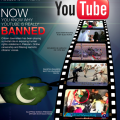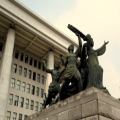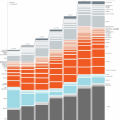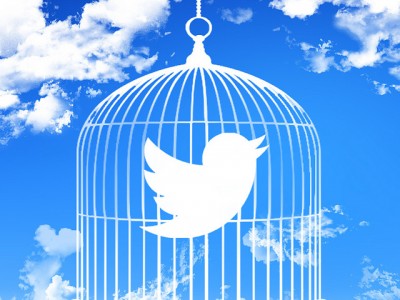Stories about Law from March, 2013
On Eve of Elections, Advocates Challenge YouTube Blocking in Pakistan
With general elections fast approaching in Pakistan, advocates are urging the government to cease blocking sites like YouTube which have become vital platforms for the circulation of news and information. YouTube has been blocked in Pakistan nearly continuously since September 2012. In partnership with the Media Legal Defence Initiative, Pakistani NGO Bytes for All is challenging the blocking in court.
South Korean Politician Moves to Repeal Biased Copyright Law
On Friday, South Korea's National Assembly will meet with supporters and opponents of the country's "three strikes" law, including Assembly Member Mr. Choi Jae-Cheon, who has moved to repeal provisions of the law that allow authorities to disable a person's web service account or shut down his or her website for violating copyright regulations.
Victory for Transparency: Microsoft Reports on Government Requests for User Data
Last week Microsoft released its first transparency report, which covers all requests for user data from law enforcement and judicial authorities received in 2012. The report offers specific data on Skype, a particularly important step towards building trust with users who may be vulnerable to government surveillance, describes Microsoft's approach to complying with US law, as well as law enforcement and privacy laws in other countries.
Venezuela: Twitter user detained for spreading “destabilizing” information
On March 14, Lourdes Alicia Ortega Pérez was detained by Venezuelan authorities for allegedly having "usurped the identity of an official of the Autonomous Service of Registries and Notaries" and having sent messages on Twitter that were "destabilizing [to] the country." An official press release stated that police also seized Ortega's personal computer as part of their investigation.
US Soldier Sent WikiLeaks Documents to “Spark Debate” on War
Last week, US Army soldier and whistleblower Bradley Manning took the stand in a military hearing to explain, in his own words, why he leaked thousands of sensitive military documents to the website WikiLeaks. Manning told the court that he decided to leak these documents to the media because they left him deeply concerned about American military activities in the wars in Iraq and Afghanistan.
#FreeRod: Chilean Twitter User Faces Trial for Parody
Chilean billionaire Andrónico Luksic has accused Twitter user Rodrigo Ferrari of “usurpation of identity” for running an account that mocked Luksic. If Ferrari is found guilty, the case could set a disturbing precedent for both free expression and privacy in Chile.
Location Matters: Online Defamation in Latin America
In Latin America, where defamation laws are not consistent, online defamation cases threaten to erode the universal right to freedom of expression, which is enshrined by nearly every national constitution in the region. Definitions of what constitutes a criminal defamation offense - and therefore its consequences - vary throughout the region. A critical comment online could lead to a fine in one country but a prison sentence in another.







